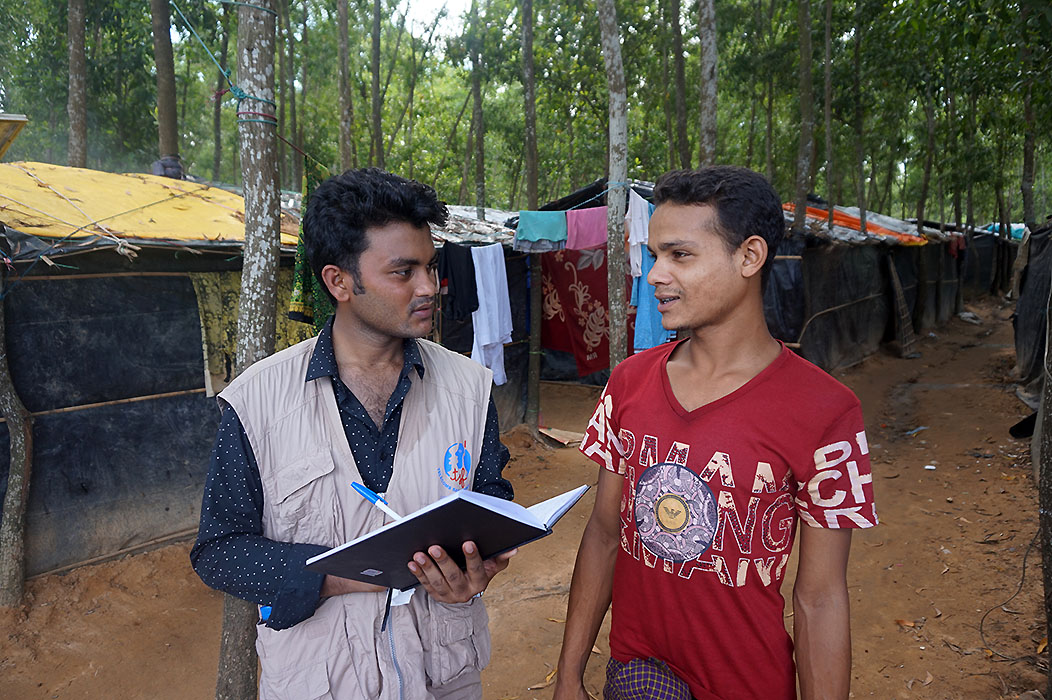Since the end of August 2017, hundreds of Rohingya have been arriving daily in south-eastern Bangladesh to flee the violence in the Rakhine State, western Myanmar. They come in addition to the hundreds of thousands of refugees already living in camps or hosted by local communities. By the end of October 2017, Bangladesh was hosting more than 800,000 refugees.
Within makeshift camps, precarious and unhealthy living conditions (no water and sanitation) were aggravated by the torrential rains of the monsoon season stretching from June to October.
The Rohingya are the largest stateless population in the world. These ethnic minority Muslims are treated as foreigners in Myanmar, a country in which Buddhism is the principal religion.
Following discussions with the International Organization for Migration (IOM), which is responsible for coordinating the humanitarian response in Bangladesh, TSF deployed a team to assess the telecom needs in the camps, both for refugee families and for humanitarian organisations that initiated new service centres and could benefit from access to Internet.
TSF conducted assessments directly in the Kutupalong, Balukhali, Akhim Para, Leda and Nayapara camps to assess access to mobile and internet communications, electricity and information.
TSF teams concluded that the various local operators were able to provide Internet connections over 3G, Wi-Fi or optical fibre in the camps to serve NGO offices.
Most refugee families had a phone and a local SIM card. In addition, the MNO Robi had set up free calling stations available to the population, with a usage rate of about 40 calls per day.
TSF shared the results of the assessments with the Emergency Telecommunications Sector (ETS) and the Community Communication Working Group (CwC), as well as a proposal for technical solutions to improve access to information in the camps.
TSF worked closely with the Emergency Communications Sector (ETS) and the Community Communications Working Group (CwC) by sharing evaluation results and proposing technical solutions to enable better access to information in the camps.











